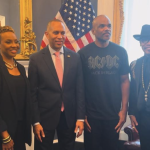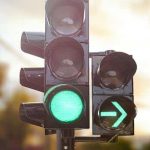Earlier in the week, we reported on New Jersey’s decision to simplify the self-exclusion procedure from brick-and-mortar casinos by offering an online option.
Now, after facing significant opposition, the Pennsylvania Gaming Control Board (PGCB) has ruled on a similar matter by not implementing a proposed policy change that would have streamlined the process for self-excluded gamblers to return to casinos.
In Pennsylvania, individuals who voluntarily place themselves on the self-exclusion list for casino gambling must manually remove themselves from the ban list once the exclusion period comes to an end.
This contrasts with other gambling forms, such as online gambling, fantasy sports, and video gaming terminals, where bans are lifted automatically once the exclusion period expires.
The PGCB’s proposal aimed to standardize the process by allowing automatic removal for land casino exclusions as well.
However, after a month-long public comment period, the board received over 40 responses opposing the change from addiction specialists, advocacy groups, and the Pennsylvania Department of Drug and Alcohol Programs.
Based on this feedback, the board rejected the proposal during their latest monthly meeting.
Fears of Increased Relapse Rates
Josh Ercole, executive director of the Council on Compulsive Gambling of PA, expressed concerns about the risks of automatic removal.
“Keeping individuals in a safer position rather than putting them in a potentially risky position, that’s always the right decision,” Ercole explained. “I think the change would have put them in a precarious position.”
The PGCB argued that the opposition was triggered by fears of increased relapse rates among problem gamblers.
Doug Harbach, the board’s communications director, acknowledged the public’s input.
“This is how the process is to work and the Board appreciates everyone who took the time to provide input,” he said.
While some casino representatives, including those from Live! Casino Pittsburgh, refrained from taking a stance on the proposal, they supported efforts to make it easier to identify self-excluded patrons.
“It Really Slows Down an Impulsive Thought”
Many public comments came from addiction counselors and advocacy groups. Jody Bechtold, a Pittsburgh-based gambling addiction expert and chief executive officer of Institute, was instrumental in circulating a petition against the change.
“This was a very, very important decision. It impacts lives, and I was really pleased that advocacy and getting the story out really got their attention, and they listened,” Bechtold said.
She also further highlighted the need for manual removal across all forms of gambling.
“It really slows down an impulsive thought and really helps people think it through,” Bechtold argued, adding that people tend to get “triggered” by the idea of automatic expiration and “tempted” at the thought that they can gamble again straight if they want to.
Eliminating Confusion Among Gamblers
The proposal initially aimed to reduce confusion among self-excluded gamblers who believed they were automatically removed.
Harbach had previously mentioned that these misunderstandings had led to a series of confrontations when players went back to casinos, assuming their bans would lift automatically.
“They misunderstood and thought that they were also removed from the casino program, and as a result, returned to a brick-and-mortar facility where they quickly found out that that wasn’t the case,” he explained.
Self-excluded gamblers risk having winnings seized and facing trespassing charges if they re-enter casinos.
To avoid these problems, Ercole and Bechtold advocate for a unified approach with consistent manual removal processes across all gambling platforms to promote safer gambling practices.





GIPHY App Key not set. Please check settings